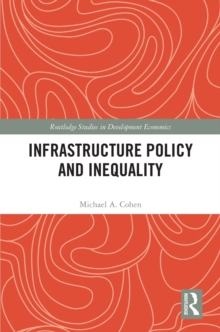
Energy, Bio Fuels and Development : Comparing Brazil and the United States EPUB
Edited by Edmund Amann, Werner Baer, Don Coes
Part of the Routledge Studies in Development Economics series
EPUB
Description
This collection examines the important and topical issue of the economic, social and environmental implications of concerted attempts to diversify energy sources away from fossil fuels. The book expertly examines this issue by focussing on the contrasting experiences of two major economies; one developed, and the other a rapidly expanding, emerging market.
Energy, Bio Fuels and Development evaluates the experience of Brazil, with elements of that of the US highlighted for the purpose of comparison. A key area of concern surrounds the causes and consequences of the contrasting routes to biofuel production represented by sugar cane (in Brazil) and corn (in the US). The book also places the recent biofuels drive in perspective by discussing the broader energy policy context. The book shows the complexity and interdependence of the issues involved in moving a society reliant on non-renewable energy sources to one based on alternative sources of energy.
The key conclusion to emerge is that Brazil, in pursuing a flexible mix of fossil fuels and bio-fuels, has greatly diminished its exposure to exogenous energy shocks. The US experience - in particular its development of corn-based ethanol - has been more problematic, though by no means without successes. It is argued that bio fuels should not be seen as a panacea. There are clear limits to the efficiency and cost effectiveness of current biofuel production technologies while there remain concerns surrounding potentially adverse effects on food production and rural livelihoods.
This book should be an excellent resource for students focussing on economic development, particularly in the areas of energy, biofuels, rural development and food supply.
Information
-
Download - Immediately Available
- Format:EPUB
- Pages:336 pages
- Publisher:Taylor & Francis
- Publication Date:07/03/2011
- Category:
- ISBN:9781136846205
Information
-
Download - Immediately Available
- Format:EPUB
- Pages:336 pages
- Publisher:Taylor & Francis
- Publication Date:07/03/2011
- Category:
- ISBN:9781136846205










